第39章 ANALYTIC OF AESTHETIC JUDGEMENT(6)
Nature, therefore, is sublime in such of its phenomena as in their intuition convey the idea of their infinity.But this can only occur through the inadequacy of even the greatest effort of our imagination in the estimation of the magnitude of an object.But, now, in the case of the mathematical estimation of magnitude, imagination is quite competent to supply a measure equal to the requirements of any object.For the numerical concepts of the understanding can by progressive synthesis make any measure adequate to any given magnitude.Hence it must be the aesthetic estimation of magnitude in which we get at once a feeling of the effort towards a comprehension that exceeds the faculty of imagination for mentally grasping the progressive apprehension in a whole of intuition, and, with it, a perception of the inadequacy of this faculty, which has no bounds to its progress, for taking in and using for the estimation of magnitude a fundamental measure that understanding could turn to account without the least trouble.Now the proper unchangeable fundamental measure of nature is its absolute whole, which, with it, regarded as a phenomenon, means infinity comprehended.But, since this fundamental measure is a self-contradictory concept (owing to the impossibility of the absolute totality of an endless progression), it follows that where the size of a natural object is such that the imagination spends its whole faculty of comprehension upon it in vain, it must carry our concept of nature, to a supersensible substrate (underlying both nature and our faculty of thought).which is, great beyond every standard of sense.Thus, instead of the object, it is rather the cast of the mind in appreciating it that we have to estimate as sublime.
Therefore, just as the aesthetic judgement in its estimate of the beautiful refers the imagination in its free play to the understanding, to bring out its agreement with the concepts of the latter in general (apart from their determination): so in its estimate of a thing as sublime it refers that faculty to reason to bring out its subjective accord with ideas of reason (indeterminately indicated), i.e., to induce a temper of mind conformable-to that which the influence of definite (practical) ideas would produce upon feeling, and in common accord with it.
This makes it evident that true sublimity must be sought only in the mind of the judging subject, and not in the object of nature that occasions this attitude by the estimate formed of it.Who would apply the term "sublime" even to shapeless mountain masses towering one above the other in wild disorder, with their pyramids of ice, or to the dark tempestuous ocean, or such like things? But in the contemplation of them, without any regard to their form, the mind abandons itself to the imagination and to a reason placed, though quite apart from any definite end, in conjunction therewith, and merely broadening its view, and it feels itself elevated in its own estimate of itself on finding all the might of imagination still unequal to its ideas.
We get examples of the mathematically sublime of nature in mere intuition in all those instances where our imagination is afforded, not so much a greater numerical concept as a large unit as measure (for shortening the numerical series).A tree judged by the height of man gives, at all events, a standard for a mountain; and, supposing this is, say, a mile high, it can serve as unit for the number expressing the earth's diameter, so as to make it intuitable;similarly the earth's diameter for the known planetary system; this again for the system of the Milky Way; and the immeasurable host of such systems, which go by the name of nebulae, and most likely in turn themselves form such a system, holds out no prospect of a limit.Now in the aesthetic estimate of such an immeasurable whole, the sublime does not lie so much in the greatness of the number, as in the fact that in our onward advance we always arrive at proportionately greater units.The systematic division of the cosmos conduces to this result.For it represents all that is great in nature as in turn becoming little; or, to be more exact, it represents our imagination in all its boundlessness, and with it nature, as sinking into insignificance before the ideas of reason, once their adequate presentation is attempted.
SS 27.Quality of the delight in our estimate of the sublime.
The feeling of our incapacity to attain to an idea that is a law for us, is respect.Now the idea of the comprehension of any phenomenon whatever, that may be given us, in a whole of intuition, is an idea imposed upon us by a law of reason, which recognizes no definite, universally valid and unchangeable measure except the absolute whole.But our imagination, even when taxing itself to the uttermost on the score of this required comprehension of a given object in a whole of intuition (and so with a view to the presentation of the idea of reason), betrays its limits and its inadequacy, but still, at the same time, its proper vocation of making itself adequate to the same as law.Therefore the feeling of the sublime in nature is respect for our own vocation, which we attribute to an object of nature by a certain subreption (substitution of a respect for the object in place of one for the idea of humanity in our own self-the subject);and this feeling renders, as it were, intuitable the supremacy of our cognitive faculties on the rational side over the greatest faculty of sensibility.